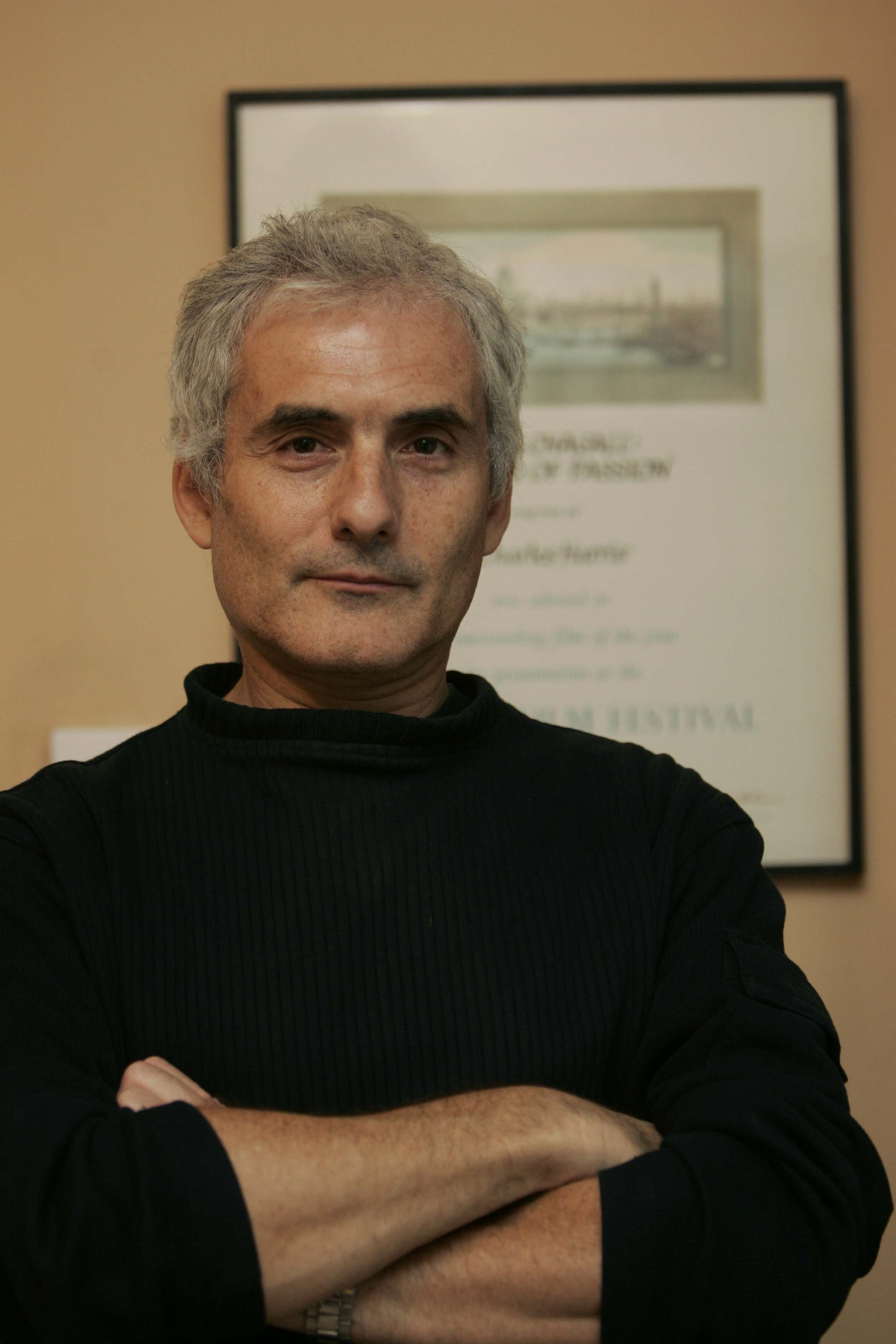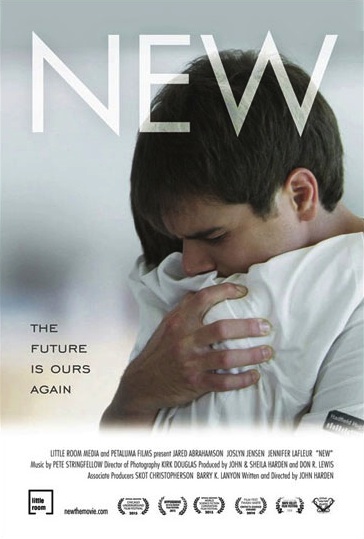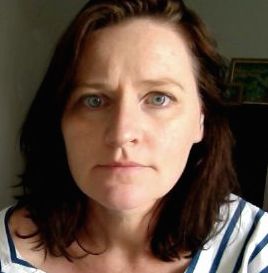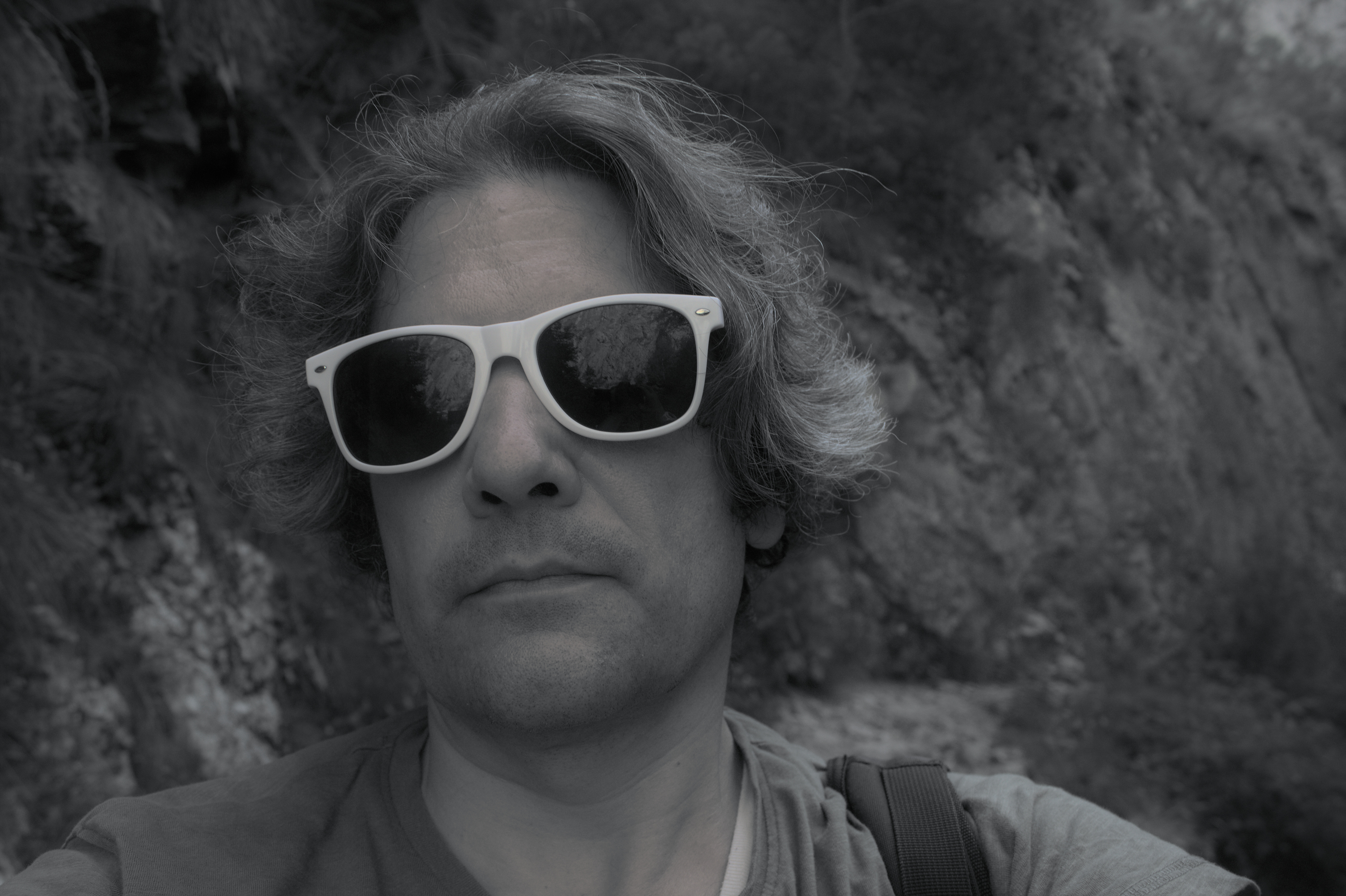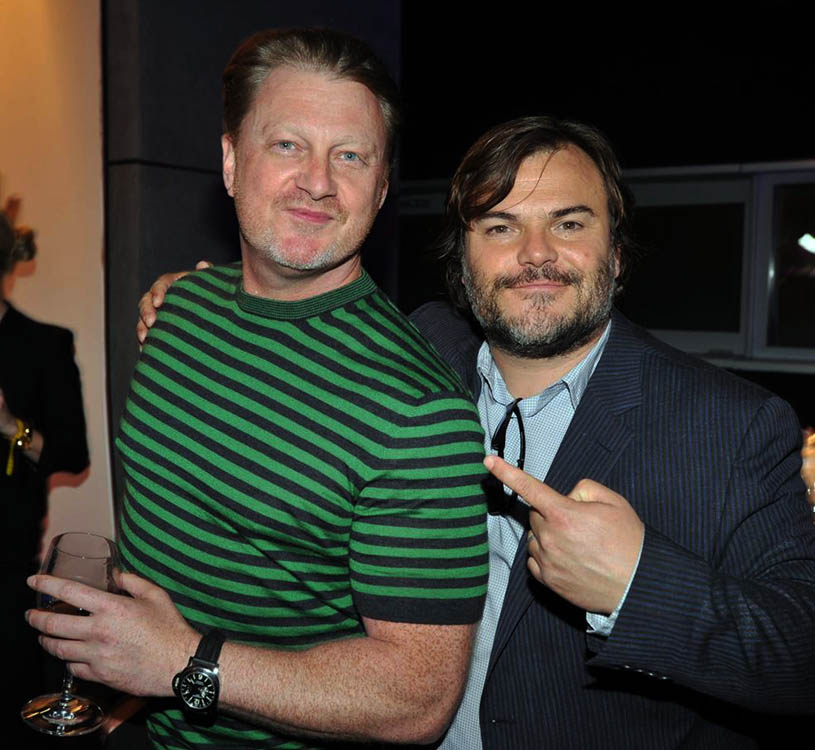ASK & DISCUSS
INDEX"Save the Cat!' - the book that's made every movie feel the same.
11 years, 6 months ago - Karel Bata
Recently you may have felt a strangely familiar feeling: You’ve seen this movie before. Not this exact movie, but some of those exact story beats...
Apparently it's down to Blake Snyder's 2005 book 'Save the Cat! The Last Book on Screenwriting You’ll Ever Need': http://bit.ly/Save-The-Caat
Only members can post or respond to topics. LOGIN
Not a member of SP? JOIN or FIND OUT MORE
11 years, 6 months ago - Michael Rossato-Bennett
I agree 100%- If you actually deconstruct story structure you will uncover something that will make you feel like an idiot for turning to it like it was some truth or gift from god. Your main guy wants something- he finds someone who gives him a gift- he wants to change something about himself and the world- he goes into something that turns his world upside down- he is lost for a bit- he learns something and is better equipped for tomorrow-
I am just joking but what I have described is someone wanting, scoring, doing and coming down from a drug. (re-read it)
Personally, as a filmmaker I am not interested in being a drug dealer- I think that is what we have allowed ourselves to become... True story telling takes courage, not just a recipe. No offence, but engineers making films is exactly what has happened. Life has been turned over to programmers. I can not believe the sorry 'state of the story' at the moment. When a culture's stories become meaningless, the culture had better wake up or it is over!!!
May you live in interesting times! This is my favorite curse- and we have entered them!
11 years, 6 months ago - GILLIAN MCIVER
I have read a few of these books, including Snyder's, but to my mind the best way to understand the construct of films is firstly to watch a lot of them, from different periods and different countries. Then, to read a lot of books and plays to get a feel for language. And observe the world around you, unplugged from your phone. Then to look at a lot of paintings to understand how to think visually. It takes way longer than reading a book but it's worth it; and let's face it, that is how the film industry as built in the first place, before the 'how to' books were dreamt up.
I do find Vogler's book quite useful though for those who can't be faffed to read Jung and Campbell, but as a manual it's as dodgy as the rest.
11 years, 6 months ago - Bill Hartin
Isn't it a bit unfair to nail Blake Snyder as the main culprit for filmmaking mediocrity or homogeneity? Others have played with his suggestions to their own needs, as he also suggested in his book, with some interesting results. I suspect the entire "This is how to do it" cottage industry surrounding screenwriting is equally to blame - McKee, Vogler, Trottier, Bork, Croasman, etc. - they're all complicit, though well intentioned. It also probably doesn't hurt that they've all made a buck or two from their "help." In my humble estimation they all provide insight to the roadmap we screenwriters end up writing, with the hope that someone wants to take the trip.
11 years, 6 months ago - Michael Rossato-Bennett
Agreed!
I don't blame them for doing what they do at all- I blame all of us for searching for and grasping hold of the idea that this is 'the way all stories work'. IMHO stories are not "working" right now- as a matter of fact, the state of "story" at the moment is plain embarrassing very often these days!
11 years, 6 months ago - Robin Schmidt
I've got to ask you where I can find this state of story? We're apparently living in a golden age of television. But it's true the writing is embarrassing. Sweeping generalisations like that help nobody. If you mean there are lots of crap films getting made where the writing wasn't good enough then say so. More films are getting made, more people have access to gear to shoot. That's always going to mean more mediocre work. To be honest, we've not had it this good since th seventies,it just so happens that the great stories aren't concentrated in film. Le generalisations help no-one
11 years, 6 months ago - Ivo Marloh
@Dan Selakovich I goodguess you're right. The thing is that I don't worry about studio execs ever. All my work's been outside of it, and I don't think that it's actually that easy to take a beat sheet and read a script, any script, and recognise the beats. And I'm talking good professional scripts, not stuff that bores you stupid with descriptive nonsense until you fall asleep by page 2. What I'm trying to say is that if one writes in such a way that it's a page turner and sucks the reader in, then I don't believe they'll be scrutinizing it too thoroughly, because they won't understand what's happened. I know I probably don't make sense, sorry. But I think there comes a point when the quality is better than the d-person's understanding of it, at which time they won't be able to hold it against a beat sheet, because hopefully the layers and the tension will obscure all of that. I might be naïve about it. But it's worked for me. But then I've not really worked with real studio drones yet, apart from TV execs, but that's different again.
11 years, 6 months ago - Ivo Marloh
@Dan Selakovich I think I might actually have to read Save The Cat now..... I've only ever read Syd Field, Story and Phil Parker and can't really remember any of them. Or, no wait, I might just WRITE a how-to book instead! And become a guru.
THE 17 STORY BEATS YOU MUST HIT BEFORE YOU DIE
To Become A Shit-Hot & Rich Hollywood Writer
Download the first 2 chapters here for free!
links etc
:-)
11 years, 5 months ago - Karel Bata
@Kays Alatrakchi Welles and Truffaut certainly knew the 'rules'. But Godard...?
11 years, 5 months ago - Kays Alatrakchi
Yes, but I bet Welles, Godard, Truffaut and the likes all understood and mastered traditional story structures before "rebelling" against it. You have to understand what the rules are before you can break them, otherwise how do you know what to break?
11 years, 5 months ago - Charles Harris
I've just had the rather interesting experience of reading or revisiting a whole host of the top screenwriting books as part of a commission to write one myself.
What comes through, when you imbibe them en masse, is that they contain a great deal of useful and sensible information - in a way they replace the day-to-day contact with professionals that an up-and-coming writer might have had in the old studio system (and might if lucky have in TV today).
However, with few exceptions they are very prescriptive and don't give a lot of practical advice in dealing with the daily difficulties that a writer faces.
They also assume certain attitudes and beliefs about life (which could I suppose be called middle-American, in a horribly broad generalisation). Those beliefs have been very successful, but writers have succeeded in incorporating different beliefs in movies, and these are rarely acknowledged.
The trick, I suggest, is to read them with discrimination, to learn how to use the tools to make different kinds of stories. Does that make sense?
11 years, 6 months ago - Paddy Robinson-Griffin
@Ivo Marloh I just read it, I actually quite like it - it is partly about story archetype and partly about hammering that into a shape that some execs have taken as rules, not tools! I've suggested it to a friend on exactly the basis that Dan says it's what execs are using as a template for commissioning... He has no interest in kicking against the machine or atmospheric slow indie films, he wants to be banging out blockbusters.
11 years, 6 months ago - John Harden
I read it. More than once I wanted to throw the fucking thing across the room. A book like this could do damage to a young impressionable writer, I suppose. But if your goal is to write effective, if formulaic, mainstream movies, "Save the Cat" might help you do that. And even if it that isn't your goal, any of the books by any of the screenplay gurus mentioned here will give you some insight into classic story structure and why it works. These days I don't crack open "how-to" books to guide my writing, but to diagnose problems when I'm stuck or something's not working.
11 years, 5 months ago - Andrew Morgan
I think regarding Snyder it's probably more down to his opinion on what *type* of scripts screenwriters should be writing - he's very matter-of-fact about the genres that make money and his books are more about being successful as a writer than being a good story teller as such.
Which, for their market is fine - and even if you disagree with him, there's still plenty of insight to be gleaned from his books - personally I prefer Fields' stuff but that's just me :)
11 years, 6 months ago - Liza Bolton
Hi, like Stephen I am late to the discussion but really happy to have found it. I have been in a situation for the past few weeks having my script torn apart by a script editor / doctor for not adhearing to the STC or similar 'mantra'. I really began to doubt myself until last night when I just decided that I had enough and I am sticking with it. This is very liberating now as I feel I have taken back control of my story and can direct it the way I want and make it as an indepdent film and be honest with the story and the way I want to tell it. I am shooting this, my first feature (Cattle Raid) in June. Thanks for these posts, really really useful discussion Liza.
11 years, 6 months ago - Dan Selakovich
Stephen and Liza: good for you guys ignoring the "beat count" critiques. One of my favorite indie comedies of the last 10 years is Juno. If this went by the Syd Field formula (inciting incident on page 15), it wouldn't have worked. The inciting incident happens before the film starts. Or if you want to take a drama classic like The Godfather, the inciting incident is two-thirds of the way into the movie. If you want an action example, "Kill Bill" has the inciting incident before the movie starts. I could go on and on about great, successful films that ignore the gurus.
I have about 10 people that I use to read my stuff. Only 2 are professional writers. The rest are avid readers. If all ten hate something different, I consider myself successful. But if most don't like the same bits, then I've really got to reconsider those bits.
11 years, 5 months ago - John Mc
With any of these schools of expertise, you need to treat them with some sense. I've seen the same arguments and criticisms in the field of counselling - there are champions of Person-centred counselling, CBT, NLP, etc. At the end of the day, they are all tools to be put in a cabinet and taken out when appropriate.
Many people have slated Syd Field (me included in my blogs - http://johnmcwriter.wordpress.com), Robert McKee, Phil Parker, etc. Now we have the incredibly prescriptive Save the Cat. but it's still a useful tool for those who get stuck from time to time - juts don't take it as gospel.
11 years, 6 months ago - Ivo Marloh
Snyder, Field and McKee are all part of a cottage industry, as Martin says. That's it! Take them or leave them. When you start out you try to find helpful crutches wherever you go, it's normal. You don't jump into a car and drive it, having never driven one. I bet you anything at all, if any of you had been successful flogging a script that you'd written following STC you wouldn't be complaining about it now. No one goes on and on about how crap it was that when at art school, they had to take painting, life-drawing and color psychology classes. They're meant to teach you basics, and then you take it from there. It's like people in their 30s, 40s and 50s still blaming their parents for everything. Then you should also blame Linda Aronson for making non-linear narrative structures popular. OR whomever else. These guys are not collectively responsible for the downfall of the film industry. What's to blame is that the bottom has fallen out financially, lack of funding, and lack of making back investments. So people get risk-averse and look for formulas. When I started out I loved Syd Field. Now having written fuck knows how many feature I don't even think about acts anymore. I just try and raise suspense and interest. But there are acts for sure. There might be 5 or 6, who gives a flying toss.
11 years, 6 months ago - Dan Selakovich
The problem, Ivo, is that studio development execs take these gurus very seriously. In the 80s and into the 90s, D-people took Field's classes and read his books. If your script didn't match his beat sheet, it didn't get made. Now it's the "Save the Cat" formula.
11 years, 5 months ago - Vasco de Sousa
Snyder is not as influential as some people think. The three act structure has been dominant in Hollywood since the time of DW Griffith. Snyder's analysis was a break down of what was already there.
It's like saying, most building in America are rectangular. That's what Snyder did, he basically called it as he saw it, and noticed that not many people lived in igloos. Old movies fit his structure just as well as new ones do.
Watch Hitchcock films, you'll see Snyder's beats in them.
Citizen Kane didn't really have them, but then, Orson Wells was rebelling against the Hollywood system of his day. There were other notable rebels, like the French New Wave. Note they were rebelling against something, a system that has existed and dominated since the silent era, a system with its own story points.
11 years, 6 months ago - Stuart Wright
Craig Mazin of scriptnotes podcast and hangover 2 fame describes this cottage industry as asking a demolition expert to build you a house. Being able to take a story apart is not the same as being able to write a story. From other comments from writers in Hollywood Save The Cat (and syd field for that matter) put it in the minds of none writers (devt execs) that they know writing if they know these books.
11 years, 6 months ago - Andrew Morgan
Don't be too hard on Synder - his books are about one thing: being a *successful* screenwriter. If you're a writer/director or even a screenwriter with a fondness for writing sci-fi or horror you'll get pretty depressed reading 'Save the Cat' (even though it still has some sound advice) - Fields' books are a far better bet for those of us interested purely in the technicalities of writing a solid script irrespective of genre.
11 years, 5 months ago - Natalie Massone
Hello,
I just saw the discussion and wish to agree that we need rules to write good scripts, but we also need good STORIES to tell...
At the end of the day, if Hollywood wants that kind of scripts it will buy those scripts, no matter what. It is money that decides...
Which story You want to write? your movie or someone else's (someone is paying?) or for whom is it destined, who is the buyer?
... and choose the rules Your story needs, any story can be told in many different ways, so really writers have the power and the freedom to choose despite "Save the Cat" and other tons of books ;)
If I had to a book to recommend is the collection of Russian Fairy Tales or the series by Joseph Campbell. Screenwriting is an art, and you need rules to excel, but you need to master the spirit of story to be free.
;)
11 years, 6 months ago - Stephen Russell
Sorry for jumping onto this a few days late, but I'm so glad to see that people think this way. I've read the books that most people recommend in relation to screen writing, bar Saves The Cat, until recently.
After having finished writing my first feature comedy, I sent it around to get notes from people whose opinions I value and trust. I got some great notes from a number of people, and heard back from one person that stated: although a lot of the beats were present, they were in the wrong place within the script (read: page count). After being recommended that I read Saves The Cat, I decided to give it a go and try and absorb its messages. In fairness, I think Saves The Cat is a wonderful tool for those looking to write mainstream, Blockbuster style movies. And that's cool if that's what you want to do. But the script I've worked on, the story I've tried to craft, is most definitely not that; it's an undeniable indie movie, and proud of it (though how I get it read/produced is another matter entirely - haha!)
I've found that some people have difficulty actually reading the script through this prism, unable to understand that I don't want to crowbar in the STC mantra, hitting page counts and heeding the words from those pages as though they were defined scripture. I was starting to worry that I was thinking about it wrong, that I had to get every beat in its correct place to help the story, so I'm stoked to see others feel, as I do, that, no, it's not necessary and, if anything, doing so impairs the sincerity of your story and message.
11 years, 6 months ago - Tom Lionetti-Maguire
I'm so glad that I found this thread. I am a young impressionable writer, so I read 'Save the Cat' and wanted to be sick all over it and throw it out of the window simultaneously. But at the time nobody agreed with me; it was like Snyder was some cult guru who had everyone duped. For me it was the prescriptive nature of the book that felt worst, like being told colours had been abolished. Incidentally I love that Synder demonizes Christopher Nolan for making 'Memento', listing it as the antithesis of his golden rules and hence why it was a flop. Yeah, great example, Nolan's a real flop now! But the thing that really galled me the most was that it felt like a school rule-book, or a communist manifesto- 'this is how you will write stories'- which seems to me to be in direct opposition to the art of storytelling. Forget the formulaic Hollywood ending etc, isn't that what screenwriters are really looking for, a great story?
11 years, 6 months ago - Kays Alatrakchi
As it often happens, many of the posts I read are head-scratchers. There is a great deal of hostility toward screenwriting books, but I feel it's not only misplaced, but also originates from individuals who seem to have taken all the wrong information from it.
First of all, we should all realize that most of these books offer suggestions and general guidelines, not strict rules to be adhered to to the letter.
Secondly, it bears repeating that structure is typically considered to be a good thing is just about everything that humans have created. We thrive on structure. Lack of structure = chaos...not particularly good.
Thirdly, it should be said that one should master the rules in order to break them. Far before Picasso started into his cubist phase, he had mastered classical painting (google it if you don't believe me).
The films that have inspired me to become a filmmaker all follow a similar "formula" to what is laid out in STC -- Star Wars, Alien, Raiders of the Lost Ark, Close Encounters, Jaws, E.T., Aliens, The Matrix, and so on. They all have their own individuality while functioning within very similar structures.
Someone mentioned Memento, I love that film and I would argue that it too follows some of the STC tropes albeit in its own way. Is it however a complete accident that Nolan's most successful films (Batman, Inception, The Prestige, etc) do stick more closely to the traditional STC structure?
Coming from a musical/composition background, I have always embraced structure as a mind-opener and not a restrictive prison. Some of my most adored avant-garde composers (Cage, Glass, Bartok, Schoenberg) are composers who built extremely tight confines around themselves, to then obliterate the expectations by creating unheard of creations within these confines.
As a member of several writing groups and as a producer on the lookout for good screenplays, I can say that I wish more people would read STC and understand basic structure, and most importantly what constitutes good drama. It never ceases to amaze me how many screenplays are created which have no beginning, middle, or end and simply feature characters talking non-stop about utterly uninteresting things.
Related to STC, and also quite helpful, here is an oldie but goodie:
http://nofilmschool.com/2010/10/david-mamet-drama-a-memo-the-unit-writers/
11 years, 6 months ago - Dan Selakovich
Yeah, I read that when it first came out, and it literally made me sick to my stomach. But I think the author of the Slate article let Syd Field off the hook. He's just as bad.
11 years, 6 months ago - Adam Ethan Crow
I really don't understand this thread. Save The Cat offers a framework, what you wrap around that is up to the scribe. When a house is built you draw up blueprints, book a crew, lay the foundations, if you want to put turrets and a moat on the property it is up to you. Films that feel derivative are not down to Save the Cat, they are down to lazy writers.






